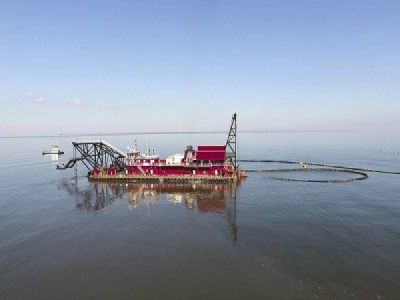
Posted on June 5, 2017
The leaders of Louisiana’s deepwater ports are clamoring for deeper, more consistently maintained river channels, and their voices are getting louder.
As 10/12 Industry Report details in its second quarter issue, the execs say an increase in channel depths will lead to increased cargo capacities and an ability to handle larger vessels, which in turn will make them more lucrative ports of call.
It’s hard to deny that the state’s ports are major economic catalysts.
According to data provided by the Ports Association of Louisiana, about 400,000 jobs and $20 billion in personal earnings are directly attributable to the ports.
In the lower Mississippi River alone, more than 500 million tons of cargo are moved on an annual basis, contributing to the state’s ranking among the top tonnage port locations in the country.
Still, the need for a more dependable means of dredging remains a persistent problem, and a lack of funding is the culprit. Both the ports and the U.S. Army Corps of Engineers are largely dependent upon state and federal money, and without it little can be done.
Fortunately, the Corps appears to be making some headway. A proposed plan would deepen the Mississippi River’s main ship navigation channel from 45 to 50 feet between the river’s mouth and Southwest Pass, as well as dredge three “crossings” between New Orleans and the Port of South Louisiana.
So far, the news out of Washington has been encouraging, as President Donald Trump’s administration has made the $88.9 million project a high priority. The effort to deepen the channel is No. 7 on the administration’s Top 50 infrastructure projects, announced in January.
Marti Lucore, senior project manager at the Corps’ New Orleans District office, says the Mississippi River deepening project was originally proposed decades ago.
“We already have authority to go to a deeper depth, but we haven’t moved on constructing anything in 20 years,” Lucore says. “We have to make sure that it’s economically justified, because we haven’t looked at this since the 1990s. Since so much time has passed, it’s not just a simple update; we must start over. That’s why it’s so comprehensive, to confirm that we’ve got our analysis right.”
Source: BusinessReport





